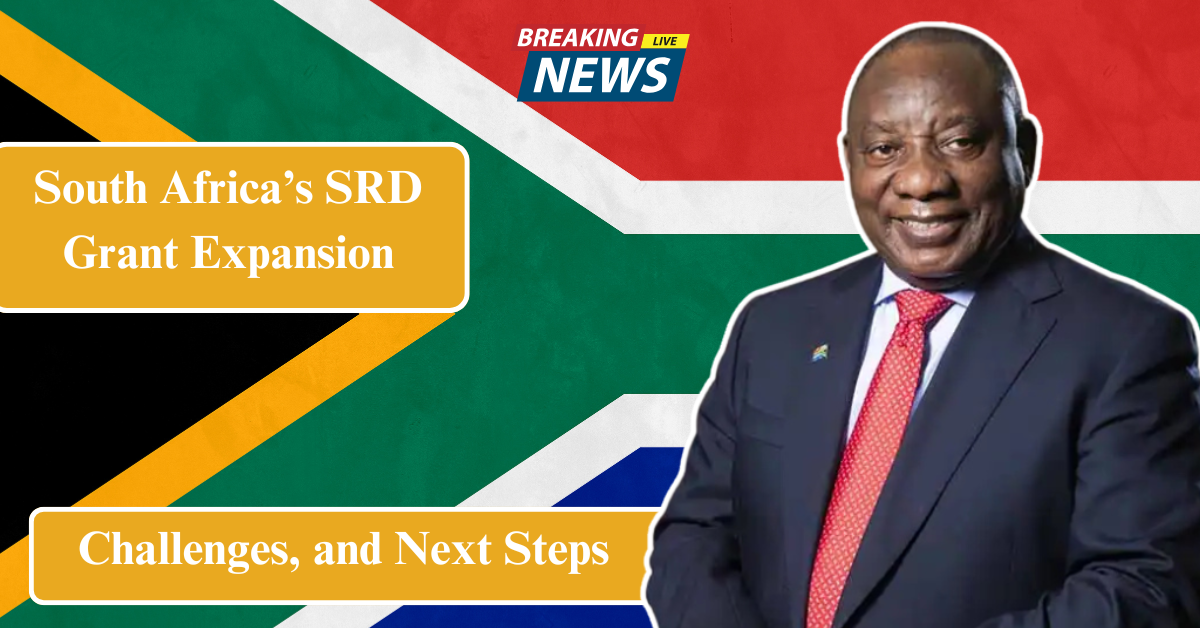In his 2025 State of the Nation Address (SONA), President Cyril Ramaphosa reaffirmed the government’s commitment to expanding the Social Relief of Distress (SRD) grant. As a key pillar of South Africa’s social welfare system, the SRD grant has provided critical financial support to millions of unemployed citizens. Now, with plans to significantly increase its reach, the initiative aims to address extreme poverty and lay the foundation for long-term income stability.
Expanding the SRD Grant to Fight Poverty
President Ramaphosa emphasized the essential role of the SRD grant in alleviating poverty, outlining plans to expand its coverage from 10.5 million beneficiaries to over 18 million. However, this ambitious move requires an estimated R35 billion in additional annual funding.
“The Social Relief of Distress Grant is an essential mechanism for alleviating extreme poverty,” Ramaphosa stated. “We will use this grant as a basis for the introduction of a sustainable form of income support for unemployed people.”
A recent High Court ruling reinforced this effort, recognizing the SRD grant as a permanent component of South Africa’s social welfare framework. This legal decision adds pressure on the government to ensure financial sustainability while keeping the grant accessible to those in need.
Building a Comprehensive Support System
While the SRD grant has provided vital relief, Ramaphosa acknowledged that financial aid alone is not enough to break the cycle of poverty. The government aims to integrate social assistance with job training and employment programs to create a more effective support system.
“We are strengthening existing programs, from job search support to public employment, and ensuring they collectively provide pathways out of poverty,” he explained.
To improve accessibility, the President proposed a single-entry system for social services, reducing bureaucratic obstacles and streamlining assistance for vulnerable citizens.
Momentum for a Basic Income Grant (BIG)
Ramaphosa’s announcement has reignited debates on transforming the SRD grant into a permanent Basic Income Grant (BIG). Advocacy groups, labor unions, and political parties are pushing for broader financial support to address growing inequality.
Cosatu parliamentary councillor Matthews Parks stressed the importance of accessibility and skills development alongside financial aid.
“All eligible individuals must be enabled to access the grant while being supported with training and employment opportunities,” he stated.
The GOOD Party has proposed a substantial increase, advocating for a minimum monthly grant of R999. “This commitment must translate into the implementation of a Basic Income Grant of at least R999 a month in the next financial year,” urged Secretary-General Brett Herron.
Funding Hurdles and Treasury’s Concerns
Despite widespread support, securing funding for an expanded or permanent income grant remains a major challenge. A fully implemented Basic Income Grant could cost around R400 billion annually, necessitating significant tax increases or alternative revenue sources.
The National Treasury has raised concerns about the financial feasibility of such a program, warning of potential economic repercussions. However, a recent High Court ruling dismissed fiscal constraints as a valid reason to deny poverty relief, increasing pressure on the government to find sustainable funding solutions.
Looking Ahead: Key Decisions Await
The future of the SRD grant—and its potential transition into a Basic Income Grant—remains a critical issue for South Africa. More details on funding, expansion, and potential increases are expected in the 2025 Budget Speech by Finance Minister Enoch Godongwana on February 19.
Ramaphosa also underscored the importance of investing in education and employment programs as long-term solutions to poverty.
“Central to our efforts to end poverty and develop our economy is to provide decent, quality education to every young South African,” he stated.
As political and social pressures mount, the government faces pivotal choices in the coming months. Whether the SRD grant will be expanded, increased, or permanently institutionalized will shape South Africa’s poverty alleviation strategy for years to come. The nation now awaits decisive action on a social safety net that millions depend on.
FAQs
The SRD grant is a government program providing financial assistance to unemployed South Africans who do not receive other social grants.
As of 2025, approximately 10.5 million South Africans benefit from the grant, with plans to expand coverage to over 18 million.
The planned expansion is estimated to require an additional R35 billion annually, while a full Basic Income Grant could cost up to R400 billion per year.
The SRD grant is temporary and targeted at unemployed individuals, whereas a Basic Income Grant would be a permanent, broader program offering guaranteed income support.
Further information is expected in the 2025 Budget Speech by Finance Minister Enoch Godongwana on February 19.

